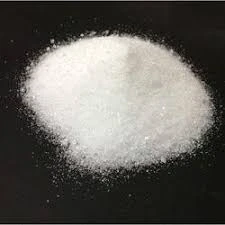Industrial Grade HPMC An Overview
Hydroxypropyl methylcellulose (HPMC) is a non-ionic cellulose ether widely recognized for its versatility and unique properties. Among its various incarnations, industrial grade HPMC is particularly noteworthy due to its applications in many sectors, including construction, pharmaceuticals, food, and personal care products. This article explores the characteristics, applications, and benefits of industrial grade HPMC.
Characteristics of Industrial Grade HPMC
Industrial grade HPMC is characterized by its white to off-white powder form, which is soluble in cold water but insoluble in organic solvents. This solubility enables it to be utilized in various aqueous formulations, making it a preferred choice in many industrial applications. The material is synthesized through the chemical modification of cellulose, wherein hydroxypropyl and methoxy groups are introduced to the cellulose backbone, enhancing its functionality and performance.
One critical aspect of industrial grade HPMC is its viscosity, which can be tailored according to specific application requirements. The viscosity range can vary from low to high, enabling formulators to customize products for optimal performance. Furthermore, HPMC is known for its excellent film-forming properties, water retention, and stability, which contribute to its usage across different sectors.
Applications of Industrial Grade HPMC
1. Construction Industry In construction, industrial grade HPMC plays a vital role as an additive in mortars, plasters, and tile adhesives. Its water retention capacity ensures that water remains present within mix formulations, allowing for smoother application and enhanced drying time. The improved workability and adhesion provided by HPMC contribute to stronger bonds and lower susceptibility to cracking.
2. Pharmaceuticals In the pharmaceutical sector, HPMC is employed as a binder, coating agent, and thickener in tablet formulations and suspensions. It aids in the controlled release of active ingredients, which can improve therapeutic efficacy and patient compliance. Moreover, due to its non-toxic and biocompatible nature, HPMC is an ideal choice for various medicinal applications.
industri grade hpmc

3. Food Products HPMC is also a valuable ingredient in the food industry, where it functions as a thickener, stabilizer, and emulsifier. Its ability to form gels and enhance texture makes it suitable for various food applications, including sauces, salad dressings, and dairy products. Additionally, HPMC is non-GMO and can be used in vegan formulations, appealing to a broader consumer base.
4. Personal Care In personal care products, such as cosmetics and lotions, industrial grade HPMC serves as a thickening agent and film former. It helps stabilize emulsions and improve the texture of formulations, leading to a more pleasant application experience for consumers.
Benefits of Industrial Grade HPMC
The advantages of using industrial grade HPMC are manifold. Its non-ionic nature means it does not interact negatively with other components in formulations, leading to enhanced stability and compatibility. HPMC is also resistant to microbial growth, which can extend the shelf life of products in which it is incorporated.
Moreover, HPMC is environmentally friendly, as it is derived from natural cellulose sources and is biodegradable. This aspect aligns with growing consumer demand for sustainable and eco-friendly products across various industries.
Finally, the ability to customize the properties of industrial grade HPMC—such as viscosity and solubility—makes it a highly adaptable ingredient. This adaptability allows industries to innovate and improve their product offerings, ensuring they meet the evolving demands of the market.
Conclusion
In conclusion, industrial grade HPMC is a vital ingredient across numerous sectors due to its versatile properties and applications. From enhancing construction materials to improving pharmaceutical formulations and food products, HPMC continues to prove its worth as an essential industrial component. Its environmentally friendly attributes, coupled with the capability for customization, solidify HPMC's position as a favored choice for modern manufacturers seeking quality, performance, and sustainability in their products. As industries continue to innovate, the relevance and application of industrial grade HPMC are likely to expand even further, reinforcing its significance in various fields.
-
Rdp Powder Bonding Strength Enhancement in Tile AdhesiveNewsAug.28,2025
-
Hydroxypropyl Methyl Cellulose Water Retention in Cement MortarNewsAug.28,2025
-
Hpmc Detergent Grade Foam Stability in Liquid SoapsNewsAug.28,2025
-
Construction Adhesive HPMC Water Retention for Tile BondingNewsAug.28,2025
-
Chemical Auxiliary Agent HPMC Thickening in Wall PuttyNewsAug.28,2025
-
Building Adhesive HPMC Anti-Crack Properties in Cement BlendsNewsAug.28,2025




